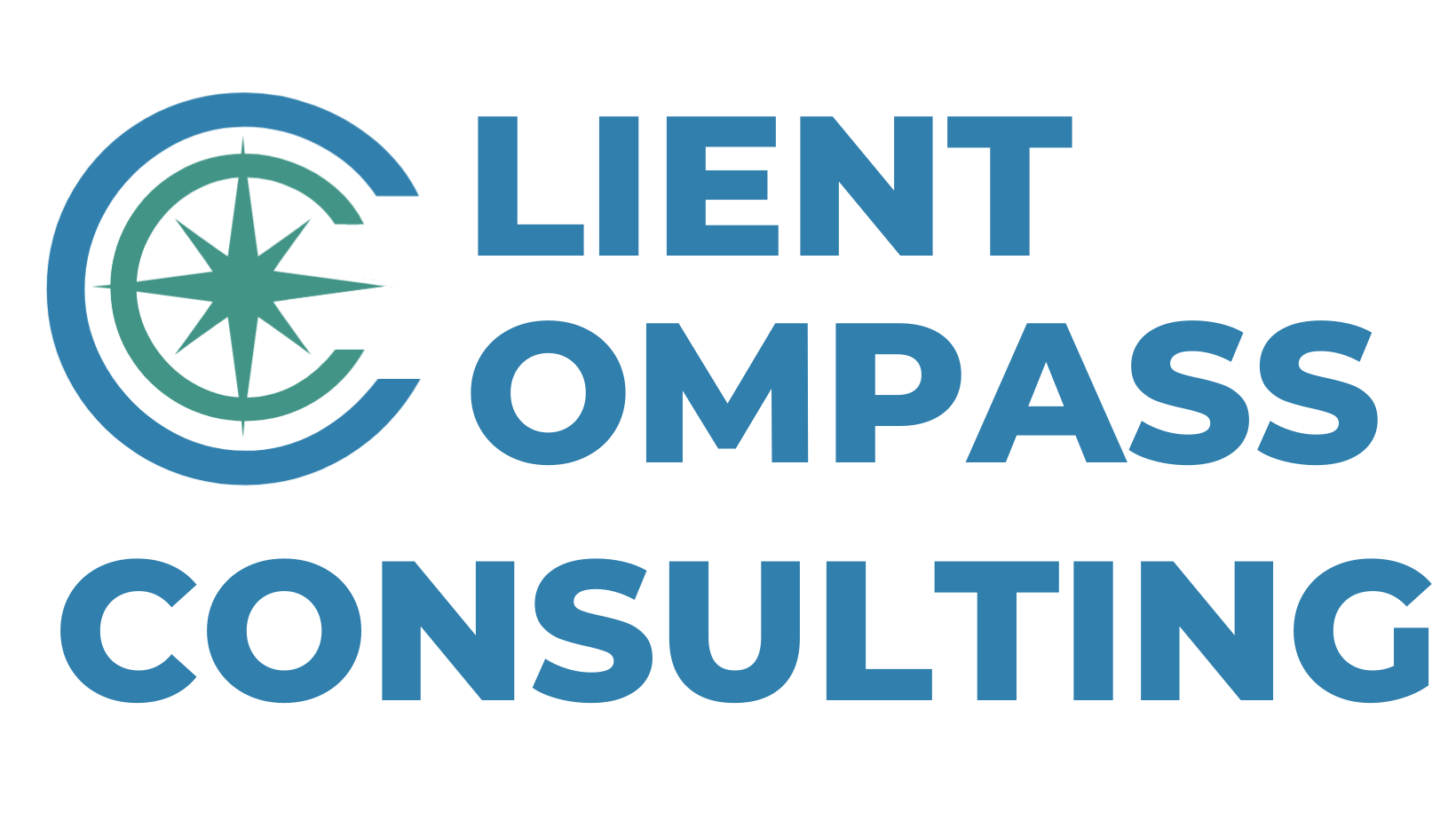hello@clientcompassconsulting.com
Navigating the Path to Promotion: When and How to Ask for a Raise or Promotion as a New Young Professional

When I began my career, I thought all the time I had spent in school and in internships was enough to prepare me to start my career on an even playing field. I soon realized I was mistaken, not in a negative way but it was a learning experience. Some of my peers benefitted from being raised with parents working in the corporate world. This translated to connections in the industry for internships, jobs and mentorship as well as offering guidance and advice for navigating the workplace and promotions. I stumbled or learned my way through most of this but you don’t have to. Here’s what I learned about creating a path for a promotion or raise as a new young professional.
Asking For A Promotion or Raise
As a new young professional, you may find yourself eager to advance in your career and secure the recognition you deserve. Asking for a raise or promotion can be a nerve-wracking endeavor, but with careful consideration and effective strategies, you can increase your chances of success. We will explore how to recognize the right time to ask for a raise or promotion and provide you with valuable tips and strategies to approach the conversation with confidence.
- Assess your value and contributions
- Prepare to ask for a promotion
- Research salary and market trends
- Consider time and milestones
- Set the stage with your manager
- Document your achievements
- Build relationships with key decision makers
- Prepare a strong pitch
- Practice, practice, practice!

Assess Your Value and Contributions
Evaluate your performance and contributions objectively. Have you consistently exceeded expectations, taken on additional responsibilities, or achieved notable results? Understanding your value within the organization is essential before seeking a raise or promotion. Some struggle and undervalue themselves by mistaking it for being humble. Here is am example:
Humble: “I’ve completed XYZ, and that has added X in value to our clients.”
Undervaluing: “Yes, I helped out with that deliverable, but X and Y also helped. It wasn’t that difficult?”
In order to overcome this barrier, list all the ways that you’ve added more valuable to the company since you started your job. Make it as specific as possible
- Any specific results to note? Can you quantify them?
- Is there an improvement in process or communication?
- Have you supported your team or cross functional teams in greater capacity than expected?
- Are there any new skills or developments you can highlight?

Preparing To Ask For A Promotion
The worst thing you can do is go into this conversation cold. If you can’t clearly provide reasons and justification for why you deserve a promotion or raise, the barrier becomes harder to overcome. After all, 80% of the work in a negotiation is done before you ever walk into the room so preparation is critical and will determine if you succeed or fail.
Research Salary and Market Trends:

Understanding your market value adds credibility during the negotiation process. You can use sites like Glassdoor.com or even ask your HR department. Consider that some states have enacted or are considering salary range transparency laws. States that have enacted laws include: California, Colorado, Connecticut*, Maryland*, Nevada, New York, Rhode Island, and Washington. While this may require some states to provide the information on your salary bands, the way that you ask also matters. Remember to be tactful and polite in your ask so that it doesn’t get interpreted as demanding. A healthy workplace will be willing to make it clear to you how they will compensate you and why, and how you can earn more or be promoted. If a company is not willing to discuss how they compensate employees, that would alert some red flags for me.
Consider Timing and Milestones:

Timing is crucial when requesting a raise or promotion. Evaluate the appropriate timing based on factors such as the completion of significant projects, milestones, or performance reviews. Are you looking at 3 months, 6 months or within the year? A strategic approach ensures your request aligns with key moments and increases the likelihood of a positive response.
Set a performance meeting with your manager:
Schedule time with your manager to discuss performance. This is your chance to collect feedback on your performance but also a great way to set expectations and timelines with your manager for your promotion or raise. Ask them what you would have to do to get a promotion or raise, and make them get specific. You’re not asking for a raise right now, but just getting an understanding of what their expectations are. This meeting ensures that your manager won’t be caught off guard when you are ready to ask, so preparing your manager creates the ramp you need leading up to your pitch.
Document Your Achievements:

Maintain a record of your achievements, completed projects, and positive feedback from colleagues, clients or partners. Tangible evidence of your contributions strengthens your case when asking for a raise or promotion. Highlight specific examples that showcase your skills and impact on the organization.
Build Relationships with Decision-Makers:

Develop meaningful relationships with decision-makers within your organization. Proactively seek opportunities to showcase your skills and demonstrate your commitment to the company’s success. Building rapport can positively influence their perception of your readiness for advancement.
As an introvert and not growing up with exposure to building professional relationships, I really struggled with this early on in my career. Here are some tips to help make it a little easier.
- Find common ground. Small talk is a learned skill so avoid static questions like “how work?” Instead make your questions action oriented like “what did you do this weekend?” or “what’s been keeping you busy?” These questions can’t be answered with a yes or no and solicited a more engaged response.
- Offer genuine compliments. This can be as simple as the work they are doing or an interview or think piece they published.
- Be curious about their journey. Ask questions about their motivations, challenges and their path.
- Present a thought-provoking idea about your industry. This has the opportunity to lead to stimulating conversation on perspectives, opinion and allow you to showcase some of your knowledge and passions.
Prepare A Strong Proposal:
Before approaching the conversation, prepare a well-structured proposal outlining your achievements, responsibilities, and the value you bring to the organization. Include specific points on how a raise or promotion will benefit both you and the company. Reference the conversation you had with your manager where they specified what you’d need to do to get a promotion or raise.
Come prepared with your proposal when you make your pitch so you can demonstrate exactly how you exceeded the requirements and are deserving of your promotion or raise.

Practice, Practice, Practice:

These conversations can be really stressful or anxiety inducing for some. Practice your pitch will help. Rehearse your talking points, anticipate potential questions, and refine your pitch to be clear, concise, and persuasive. The more confident you are, the better your chances of succeeding and confidence stems from preparation.
Tips for the Pitch:
- Remain Professional and Positive: Approach the conversation with a positive and professional attitude. Avoid making demands or comparing yourself to others. Instead, focus on the value you bring and your commitment to the organization’s success.
- Negotiate with Confidence: Be prepared to negotiate and discuss potential compromises. Consider other forms of compensation or opportunities for growth if an immediate raise or promotion is not feasible. Maintain a collaborative approach during the negotiation process.
- Have a Backup Plan: In case your request for a raise or promotion is not approved, have a backup plan in mind. Explore alternative paths for professional development, additional responsibilities, or opportunities within the organization that can help you progress towards your goals.
- Follow-Up and Seek Feedback: After the conversation, express gratitude for the opportunity to discuss your request. Regardless of the outcome, seek feedback from your supervisor or the decision-maker. Request constructive feedback on areas for improvement and ask for guidance on how to enhance your chances for future advancement.
Come prepared with your proposal when you make your pitch so you can demonstrate exactly how you exceeded the requirements and are deserving of your promotion or raise.
Knowing when and how to ask for a raise or promotion is a crucial skill for new young professionals. By assessing your value, preparing a strong proposal, and approaching the conversation with confidence and professionalism, you increase your chances of a positive outcome. Remember to remain resilient and committed to your growth, whether or not your request is granted. With perseverance, continuous improvement, and a proactive mindset, you’ll be on the path to career advancement and success.

For young professionals starting their corporate careers, investing in professional development is not just an option; it is a necessity. By committing to continuous learning, expanding networks, and honing skills, you empower yourself to navigate the challenges of the corporate world successfully. Professional development offers a competitive edge, builds confidence, and fosters adaptability, positioning you for long-term career growth and fulfillment. Embrace the journey of lifelong learning and seize every opportunity to invest in your professional development—it’s a transformative investment in yourself and your future success.
About Thuy Petersen and Client Compass Consulting
I’m a corporate marketing professional with 20+ years experience in advertising and ad tech.
As someone who understands how challenging it can be breaking into the corporate without the support and resources needed, my passion is now helping young professionals harness the skills and tools they need in order to future proof their careers with CONFIDENCE and EASE.
My mission is to break down the barriers to success!
